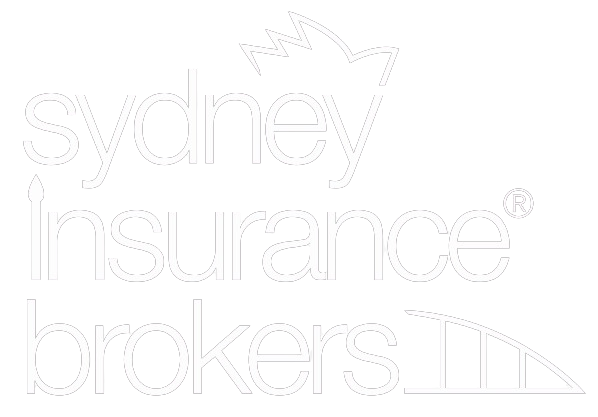Business Insurance: Fires, Floods, and Storms

Commercial Property Insurance is a must for all businesses, but is especially important in regions of Australia that are particularly prone to bushfires, floods, and bad storms. Thanks to Australia’s hot and dry climate, the country is particularly susceptible to bushfires, especially during parts of spring, summer, and autumn when the temperatures often soar high into the 30s, and more frequently, the 40s. On the other side of the spectrum, Australia is also prone to flooding and severe weather conditions. These are common after periods of extreme heat, and when cold fronts hit over the winter months. To ensure your business is protected against these extreme conditions, having comprehensive property insurance that covers bush fires, floods, and storms is a must! How Do I Know if I Need Bush Fire, Flood, and Storm Cover in my Policy? If your business is listed in a bush fire zone, having adequate cover will protect you against any damage caused to your property as a result of a bush fire, as specified in your policy. When it comes to flood and storm cover, you never know when Mother Nature is going to strike, so including natural disasters in your cover will protect you if your business acquires any hail damage, or is flooded. Flood cover isn’t always included in a standard policy, but where it is offered, it’s usually defined as: ‘The covering of normally dry land by water that has escaped or been released from the normal confines of: -Any lake, river, creek, or natural watercourse, whether or not altered or modified, or any reservoir, canal or dam. It’s common for business owners to mistake flood cover for protection against heavy rain, but this often isn’t the case. To learn more about what is and isn’t covered in our customised Commercial Property Insurance schemes, contact the team at Sydney Insurance Brokers today. What Happens if My Business is Damaged by Fire, Flood, or a Storm? The first step will be to contact us to make a claim. If your policy includes damages caused by a bush fire, flood, or storm, the claim process will begin. During this time, we will keep you updated on the progress of your claim, and will be able to offer you advice and guidance every step of the way. To find out if your business is in a high-risk area for fires, floods, and storms, you can either contact your local council, your State Emergency Service, or your Local Fire Services Authority. Alternatively, get in touch with our team at Sydney Insurance Brokers to discuss all of your Commercial Property Insurance needs.
D&O Insurance 101 – A Guide to Directors and Officers Insurance

First written by Lloyd’s of London in the 1930s, Directors & Officers Liability (D&O) Insurance was first established following the Wall Street crash in 1929 and the introduction of U.S securities laws in ’33 and ’34. Up until the 1960s, D&O remained a relatively niche class of insurance, before new interpretations of corporate law in the U.S began to hold directors and officers more easily liable for the results of their actions, and D&O entered the mainstream U.S insurance scene in the ‘70s. D&O Liability Insurance didn’t enter the mainstream Australian insurance market until the 1980s. More recently, nearly all publicly traded companies began investing in some degree of D&O Insurance cover in Australia, and it is becoming increasingly popular/valuable to smaller companies and organisations. Nowadays, Management Liability Insurance (ML) has generally taken over D&O Insurance in Australia, as MI Insurance covers D&O, as well as many other liabilities of management. How does D&O Insurance work? D&O Insurance covers company managers against liability claims that may arise from actual or alleged claims of wrongdoing on their behalf, which occurred during the scope of their management duties. Policies are designed to protect personal liability of a companies directors and officers, as well as reimbursing the insured company in case it has indemnified its managers in order to protect them. Publicly traded companies can also obtain coverage for claims against the company itself in regards to wrongful acts that affect to the trading of its stocks. D&O liability claims typically originate from shareholders, customers, creditors, regulators (civil and criminal charges), competitors (i.e. allegations of unfair trade practices) and employees. D&O policies will generally cover: Costs incurred defending a claim Financial losses sustained by the covered individuals Financial losses sustained by the covered company Costs generated by administrative and criminal proceedings in the course of claim investigations Policies will generally exclude: A D&O policy does not cover a officer or directors fraudulent, criminal or deliberately unjust actions. Though an innocent director will remain fully covered if the acts of their colleagues were intentional or fraudulent without their knowledge – D&O will not cover cases where an officer or director of a company acted for personal profit or gained illegal remuneration. As you can see, due to the complexity of D&O Insurance and the basis upon which it is issued, careful consideration of various exposures from a experienced Insurance Broker is required to ensure a broad protection is provided. For further information or inquiries on D&O or Management Liability Insurance, contact the professionals at Sydney Insurance Brokers today.
Why Should I Use a Business Insurance Broker?

With the advent of the Internet, buying your business insurance online has never been easier. But, is buying insurance online good for your business? The simple answer is, no. Whether you’re looking at liability insurance, business interruption insurance or commercial property insurance, the policy you choose is essentially a safety net that will ensure your business can operate like normal in the event something goes wrong. If you don’t fully understand the ins and outs of the insurance world and the different policies out there, enlisting the assistance of an insurance broker in Sydney is a smart move. The Benefits of Working with an Insurance Broker Insurance brokers have an in-depth knowledge of the insurance industry, and are well equipped to assist you with selecting and securing the best possible policies for your business. There are a number of benefits that come hand-in-hand with working with an insurance broker, including: They Understand Insurance Jargon What does it mean when an insurance policy includes terms like actuary, assessor, and mitigation? Your insurance broker will break down all of the technical terms for you, so you will understand exactly what you’re signing up for. They Work Independently, so Have Your Best Interests at Heart One of the biggest benefits of working with an insurance broker is that they’re not working for any specific insurance company and aren’t going to advise you to choose any specific company/policy for their own personal gain. For these reasons, they will only present/compare policies that meet your needs. They Have Strong Industry Relationships and Can Get the Best Deals Even though brokers work independently, they still have strong business relationships with a host of leading insurance providers, as well as those that work within niche markets. These relationships will allow your broker to get you the best possible deal, without you having to lift a finger. They Know What Is and Isn’t Included in Each Policy Your insurance broker will ensure any optional extras or covers not included within your policy are clearly disclosed. In doing so, you will have a full understanding of what you are and aren’t covered for. This is particularly important, as the policy you’re interested in may not include all of the cover you need, a fact that may not be made immediately clear by the policy’s jargon. They Can Provide Policy Comparisons An insurance broker will be able to easily compare the pros and cons of different policies from a number of companies. While this is something you could research yourself if you wanted to, it is a timely endeavour, so having a broker do this for you will save you a lot of time and effort. Plus, if you’re not 100 per cent sure what some of the policy inclusions and exclusions mean, your insurance broker will be able to clear up any uncertainties and explain each policy to you in further detail. If you’re looking for a business insurance broker in Sydney, you can’t look past the team at Sydney Insurance Brokers. We will work with you to determine your needs, and help you find the policy/policies that best meets your needs.
5 Tips for Preventing, and Dealing with, Employee Fraud

In Australia, employee fraud costs businesses an estimated $8.5 billion annually. It might also surprise you to know that employees carry out 80 per cent of workplace crime, while 85 per cent of respondents in a recent survey said they would commit fraud if the ‘right’ circumstances were to arise. Perhaps even more alarming than these figures is that only 5 per cent of Australian businesses have the right insurance cover to protect them against any financial losses that occur as a result of employee fraud. So, what can you do to protect your business from fraudulent employees? What is Employee Fraud? Employee fraud is any dishonest act committed by an employee that negatively impacts the business they’re employed by. It can include payment fraud, procurement fraud, or even subsistence fraud. How can You Prevent, and Deal with Employee Fraud? Step One: Do a Background Check When hiring new staff members, especially if they will have access to sensitive information or your businesses financials, make sure you do a background check. Step Two: Create a Positive Working Environment If you create a friendly, collaborative working environment, where the bosses lead by example, your staff will be less inclined to commit fraud. It all comes down to establishing respect. Studies have also shown that people respond positively to a clear organisational structure, fair employment practices, clear communication and positive recognition for a job well done. Step Three: Follow a Policy Manual and Keep Up-to-Date with Audits Regardless of the type of business you’re operating, always make sure workplace procedures are documented and every employee is trained according to the manual, and has access to it if needed. Your employee manual should also clearly state the workplace’s code of conduct and that there will be ‘zero tolerance’ for any fraudulent behaviour. It’s also advisable that you undertake regular audits, and hire an external company or person to come in and check your books. This may be an extra expense, but if they can catch any acts of fraud early on, you’ll save money in the long-term. Step Four: Get Business Insurance Once you’ve taken care hiring and training your employees, the next best thing you can do is take precautionary measures, to ensure your business is protected if your preventative measures ever fail. This is where business insurance that includes employee fraud is a must! Step Five: If Something Goes Wrong, Seek External Advice As well as having adequate insurance, if you suspect an employee is committing fraud or being dishonest, you could handle it internally, however, if you’re not equipped to do so, bring in a specialist third party. One of the most important things to consider is that you should never accuse someone of doing something dishonest if you don’t have any proof, this could lead to the employee taking legal action against you. Unfortunately, the sad reality of operating a business means you will always face a number of risks, including employee fraud. This means that no matter how careful you are, there’s always a chance that a dishonest employee will find a work around. To make sure your business is protected in the event something goes wrong, contact Sydney Insurance Brokers, to see which type of business insurance is right for you.
How to Protect Your Business Against Burglars Over the Christmas Holidays

It’s that time of year when businesses (unless you’re in the retail or hospitality industries) are starting to wind down, and thinking about shutting their doors over Christmas. However, when your workplace is unoccupied, it quickly becomes a prime target for burglars and is exposed to extra property damage risks. So, before you head out to grab a beer and celebrate the holidays with your family and friends, there are a few precautions you should take to prevent any unwanted disasters from happening before you return to work in the New Year. Plan Ahead Even as you’re starting to slow down for the year, take a moment to think about what will happen if something does go wrong over the Christmas break. For instance, what happens if there’s a burglary? You will need to make sure you have plans in place to combat any issues that arise. This might mean enlisting the services of a security company, or having staff on call should the alarm be triggered. When you designate your first responder, make sure it’s someone who can be trusted, someone who isn’t going away for the Christmas break, and someone who is willing to get up in the middle of the night to respond to any incidents. If You Haven’t Already, Invest in an Alarm System The easiest way to deter any unwanted visitors is to install a functioning alarm or CCTV system. An alarm system will actively deter intruders, while also helping to minimise any damage to your property, or theft, as burglars will be quick to flee the scene when an alarm is triggered. Therefore, CCTV will add an extra level of security and protection to your business and any valuables or confidential information stored inside. Keep Any Sensitive Information Secure Any important files should be safely locked away at all times, especially over the Christmas period if the premises will be left unattended for some time. So, your legal, financial, HR, and other sensitive documentation should be kept in a locked filing cabinet or even a safe. Likewise, any digital data should be secured with password encryptions and any necessary firewalls. You should also make sure all of your business’s data is securely backed up to an external hard drive or with secure Cloud storage. Make Sure Your Business Insurance is Up-to-Date Finally, before you close your doors for Christmas, make sure you speak with your insurance broker to make sure your business insurance is up-to-date. Regularly reviewing your insurance policies is important, so you can ensure your coverage continues to reflect your business needs, as well as any new exposures or any increased risks, such as an unattended office. If you follow each of these steps, come mid-to-late December, you’ll be able to lock the doors and enjoy your Christmas break with the peace of mind your business is safe. To find out if you have the best possible business insurance for your business, contact the team at Sydney Insurance Brokers today!
Why is Policy Maintenance So Important?

Your business is constantly evolving, so your business insurance should evolve with it. Renewing your insurance policies each year is easy, but in doing so, you could be putting your company’s financial security at risk. Each year, when your policies are due for renewal, it’s worth scheduling a meeting with your insurance broker so you can go over your business needs and any changes that have occurred within your business since you initially purchased your insurance, to make sure you still have the best possible cover for your business. The following steps will help ensure you’re getting the best bang for your buck. What Does Your Policy Cover? Have a look at, or have your business insurance broker look at, your current product disclosure statement and ask the following questions. Does your policy cover things you don’t need cover for? Does the policy exclude any items that you do need cover for? Are the financial caps on your current cover enough to cover you in the event something goes wrong? Have you made any changes within your business that would require more comprehensive/additional cover? Will you be making any changes to your business in the near future, or the next 12 months that would require you to increase/decrease your current level of cover? These questions will help ensure your insurance policies are carefully tailored to your needs moving forward. Have Your Circumstances Changed? Even the most minor things can affect your insurance policy, premiums and the likelihood of a claim being paid out. For instance, if you move premises, acquire new assets or install an alarm system, it’s important you update any relevant insurance policies to reflect these changes. Are You Happy With Your Payment Schedule and Excesses? When policy renewal time rolls around, it’s worth reflecting on how happy you are with your current payment schedule and excesses. For instance, would you rather pay a higher premium if it means your excess would be lower? Or would you prefer to pay a higher excess in exchange for a lower premium? Also, have a think about the payment options available to you. Perhaps paying your policy once a year is a financial burden on your business and you would like to change it to monthly. Or, maybe you would prefer to pay annually or even quarterly. Talk to your business insurance broker about what options are available to you. Keep Track of Your Policies and be Proactive It’s really easy to pay for your insurance and then forget about it. Most people only really think about insurance when they need to find a new policy or when it comes time to renew it. However, business insurance is something that should always be on your mind. This includes regularly evaluating any changes within your business that could affect your policy, and always working to educate yourself on the terms and conditions of your policy, so in the event you do need to make a claim, you’ll be much better equipped. If your business insurance is up for renewal, or if it’s time to reassess your current policies, contact Sydney Insurance Brokers today. We’ll help you find the best cover for your business.
A Brief History of Insurance

Since insurance first emerged, as early as Babylonian times, it has gone through a significant evolution process. From a time when there was no such thing as insurance to today, where it would be considered reckless to not have insurance, the concept of modern business and personal insurance looks a lot different today than it once was. Despite early signs of insurance, as outlined by the ‘Code of Hammurabi’, The Great Fire of London was the real instigator that led to the development of early versions of modern insurance. London, like much of the world, was in a state of turmoil after the plague ripped through the UK, killing a large portion of the population. Just as Londoners thought things couldn’t possibly get much worse, the great fire of 1666 left its mark on the city, leaving hundreds of citizens distraught and homeless. One benefit of this disaster, however, was Nicholas Barbon’s first instance of home insurance, which saw 5,000 homes insured against fire damage. From here, the concept of insurance as a form of financial risk prevention really started to take off. After Barbon and his associates opened the first insurance office in 1681, the concept of underwriting and business interruption was introduced to the world. Similar to how the unofficial stock exchange of the British Empire had been operated out of coffee houses, the practice of underwriting started to take place in informal settings. These practices were developed to deal with the growing need to ship goods between the New World and the old colonies while decreasing the level of risk faced by merchants. These humble beginnings eventually led to the establishment of Lloyd’s of London, as well as several similar shipping and insurance businesses. Nowadays, there are insurance policies in place to cover just about every risk out there, especially in the business world. From cyber crime insurance to management liability insurance and everything in between, the team at Sydney Insurance Brokers can secure your comprehensive business insurance at the best available price.
